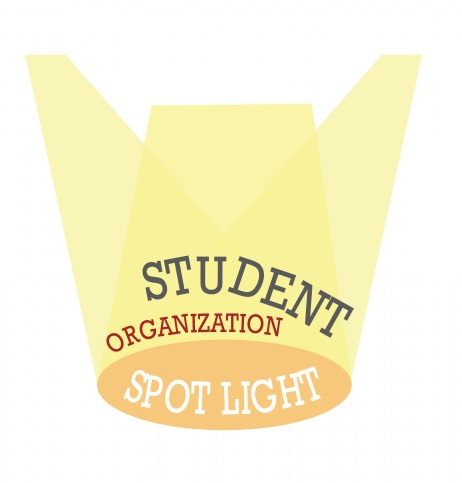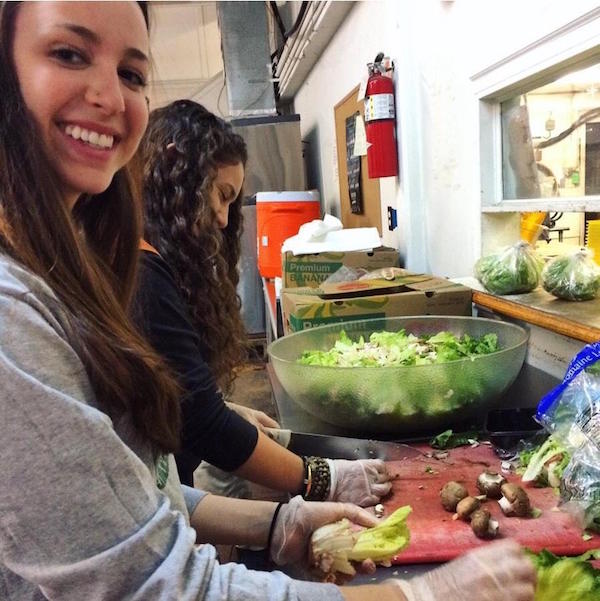Student Org Spotlight: Food Recovery Network reduces food waste from Bruff

Anh Nguyen | Associate Artist
It’s 10 p.m. on a Thursday when a group of Tulane students walk into Bruff Commons. Rather than craving a late night snack, these students are preparing to help package more than 200 pounds of food — food that would have otherwise gone to waste.
These students are a part of Tulane’s chapter of Food Recovery Network, a student organization that seeks to reduce Bruff’s food waste by redistributing leftover food from Bruff to the New Orleans Mission, a local homeless shelter.
“[FRN] is a club that is not only bringing attention to food justice, but it is really doing something about it,” junior and FRN Co-President Maya Newman said. “This is the only club that is centered around food injustice that I could find that is doing something tangible and giving it to an organization we can trust.”
Five nights a week, FRN shift leaders and volunteers congregate in the Bruff lobby before venturing upstairs to a closing dining hall. Volunteers, once in the cafeteria, place soups, pasta, carrots and other leftover foods in bins. These bins are then weighed and placed in the freezer overnight.
On a typical night, FRN has about four or five volunteers who collect and store the food, a process that takes anywhere from 15-30 minutes. In the morning, a truck from the New Orleans Mission picks up the food, and the food will then be served to people who are homeless.
“What I like about the organization that we give the food to is that they are not just a ‘take the food’ kind of place,” sophomore and FRN Secretary Lucy Murray said. “Instead, the organization sets tables and serves the meals in courses, so it is more of a respectful and caring environment.”

Maya Newman and Renata Massion help package food to redistribute to the New Orleans community.
FRN was established at Tulane in 2014 after two students recognized the opportunity to redistribute excess food from Tulane to hungry populations in New Orleans. Since the club’s founding, many members have joined the club in hopes of helping reduce New Orleans’ high rates of food insecurity.
“New Orleans is the largest food desert in America, and we kind of live in this bubble on campus,” sophomore and Co-President Renata Massion said. “We have so much food at Bruff. We have the LBC. We have food at every club meeting. And then right outside of campus, there is no fresh food and very few grocery stores, so we kind of redistribute that.”
Tulane’s FRN is part of a larger network of 230 chapters across the country that has recovered more than 2 million tons of food since its founding in 2011, according to the Food Recovery Network. There are currently four FRN chapters in Louisiana, with the other three located at LSU, University of Louisiana-Lafayette and Dillard University. Tulane’s chapter weighs the food it recovers each night and sends this data to the national headquarters, allowing the organization to track the total food redistributed.
The Tulane chapter hopes to expand in the future, possibly collecting food in the Lavin-Bernick Center for University Life and other Tulane dining locations. FRN is also considering the possibility of partnering with Loyola University New Orleans to recover food from Loyola’s campus.
“We are really trying to expand beyond just Bruff,” Massion said. “Although there is a lot of food at Bruff, there is so much more leftover food on campus.”
Students interested in joining FRN are encouraged to sign up to volunteer through the club’s OrgSync page or through the club’s sign-up sheet.
“We can always use more volunteers,” Murray said. “And, it’s an easy and rewarding club to be apart of.”
Your donation will support the student journalists of Tulane University. Your contribution will allow us to purchase equipment and cover our annual website hosting costs.



Leave a Comment